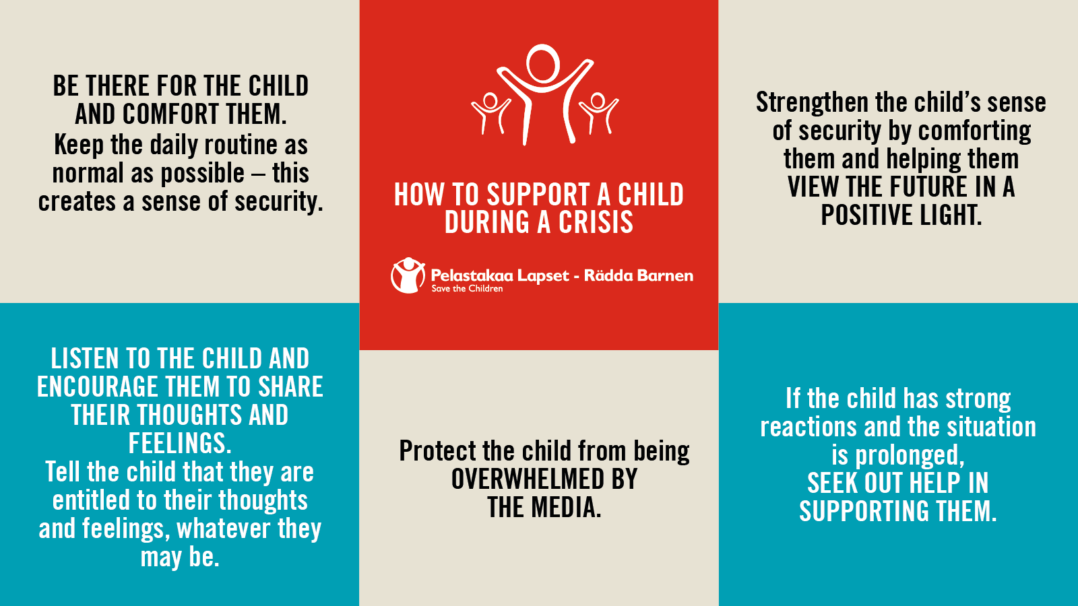How to support a child during a crisis

Supporting children and young people during crisis
Children and young people can be greatly affected by a crisis situation. Children are influenced by the distress of people around them, and many worry about their own safety and the safety of their loved ones. The child and their family may have also recently returned from a crisis area or have loved ones inside the crisis area whom they worry about. The child may have memories or experiences of similar crises that may resurface as a result of the events.
It is important for the adult to monitor how the child is reacting to the crisis or related media coverage, listen to the child’s questions and provide honest answers and comfort. The child or young person may also wonder if they could do something to help the people in need. Together with the child, the adult can think about situation-specific actions that a child or young person could do to help.
- Listen to the child or young person. Tell the child or young person that they are entitled to their feelings and that it is normal to react strongly when one feels that their own safety or the safety of others is compromised.
- The child or young person will likely need your presence more than ever, so prepare to be there for them. Discuss the events in a calm manner. Base what you say on facts. Help the child or young person distinguish facts from opinions. Foster the child or young person’s sense of security by telling them that you are there for them.
- Protect the child or young person from being overwhelmed by the media, such as TV news or online content. Remember that the child may still see things that are shocking to them in the media, so be prepared to discuss these.
- Make sure that the child or young person’s daily routine is not broken. Regular meals, sleep and exercise, along with other familiar routines, help maintain a sense of security and keep one’s mind off disturbing matters.
- Get help if necessary. If the child or young person displays noticeable symptoms or their situation worsens to the extent that they, for example, are unable to sleep or go to school, you should seek outside help by contacting social and emergency services, school health care or other similar services.
- The adult providing the support for the child may also need outside help.
For a child or young person shocked by an unpleasant event:
- It is normal that events threatening to your own well-being or the well-being of others around you can create strong emotions and reactions, such as fear, powerlessness and aggression. You should discuss your feelings and reactions with your parents, friends or other people close to you. You could also speak with a school psychologist or school nurse, for example. There is also professional help for children and young people online, such as the online club room for young people, Netari, netari.fi.
- Avoid paying too much attention to the media, such as TV news or online content. Pay special attention to looking after yourself and do things that take your mind off shocking events.
- Focus on your daily routines and remember to sleep, eat and exercise adequately. These everyday routines protect you and help you understand that life goes on despite the crisis.